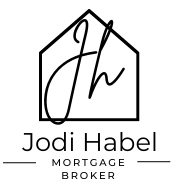Jodi Habel is a mortgage agent with more than 15 years of experience in the mortgage industry. She has been helping her clients save money in unnecessary mortgage interest through her vast relationships with major banks,
Not everyone works a traditional 9-5 job but that doesn’t mean they should be denied access to traditional mortgages and loans that others acquire. Many people who have opted for a mortgage or loan before know how much their income and credit score matter and may assume that self-employed individuals will have a much more difficult time getting approved for a mortgage. However, that isn’t the case! With a lender that supports self-employed mortgages, whether it be a bank lender, alternative lender, or a credit union, you can get approved for a mortgage like anyone else. Wondering how to qualify for a mortgage when self-employed, and more? That’s what I — Jodi Habel — am here for. Let’s see how I can help.
What is a Self-employed Mortgage?
First, let’s define what we understand by a self-employed mortgage. It falls under a different category of mortgages only because the borrower is an individual who is not tied to a corporation and is self-sufficient in terms of their financial standing. The borrower can seek a mortgage to purchase both residential and commercial properties as long as their application is in line with the eligibility criteria.
What kind of people are considered self-employed individuals?
- Business owners
- Freelancers
- Contract workers
- Gig workers
- Seasonal workers
- People who have ownership of shares for a business
It does not matter if you are an owner of a major corporation or own a small family business as long as you work with the right mortgage broker to check off all the boxes needed to be eligible for the loan.
How Do Self-Employed Mortgages Work?
To apply for a self-employed mortgage, you not only need to provide proof of your stream of income and that it is sufficient and consistent to rely on for regular payments throughout a prolonged period of time. Additionally, self-employed mortgage requirements in Canada include proof that you do not owe any money to Canada Revenue Agency (CRA).
Here is a more complete list of self-employed mortgage requirements in Canada that you must consider:
- Personal credit score;
- Income tax returns (typically past 2 years);
- Debt records/repayment history;
- Business income and expenses (typically past 2 years);
- Proof of tax payments to CRA and HST, if applicable;
- Proof of future income prospects, if applicable;
- Other financial statements for your business if deemed necessary;
- Business bank statements.
You may find that self-employed mortgage qualifications in Canada are strict, however, it isn’t impossible. I’m here to help you through the entire process from start to finish.
Qualify for a Mortgage When Self-employed in Canada
Getting a mortgage when you are self-employed may appear more difficult than usual, but if your personal income is stable and strong, then the experience will be no different than a conventional loan — perhaps even easier. What about if your business has experienced ups and downs in recent years or was affected by COVID-19? Or perhaps your personal business has been up and running for only a year and not more but you are required to provide two years of financial statements. Qualifying for a self-employed mortgage relies on the amount of trustworthiness you are able to showcase to your lender. As long as that is achieved, then you don’t have much else to worry about. It’s crucial that you provide detailed information during the process and to ensure your application is complete and accurate.
Don’t forget to contact me, Jodi Habel, to make acquiring your self-employed mortgage in Canada smoother than you can imagine. After all, it may be your first time getting a mortgage when you are self employed, but I have acquired relationships with major banks, credit unions, monoline, and alternative lenders through my 15 years of experience working in the industry.

